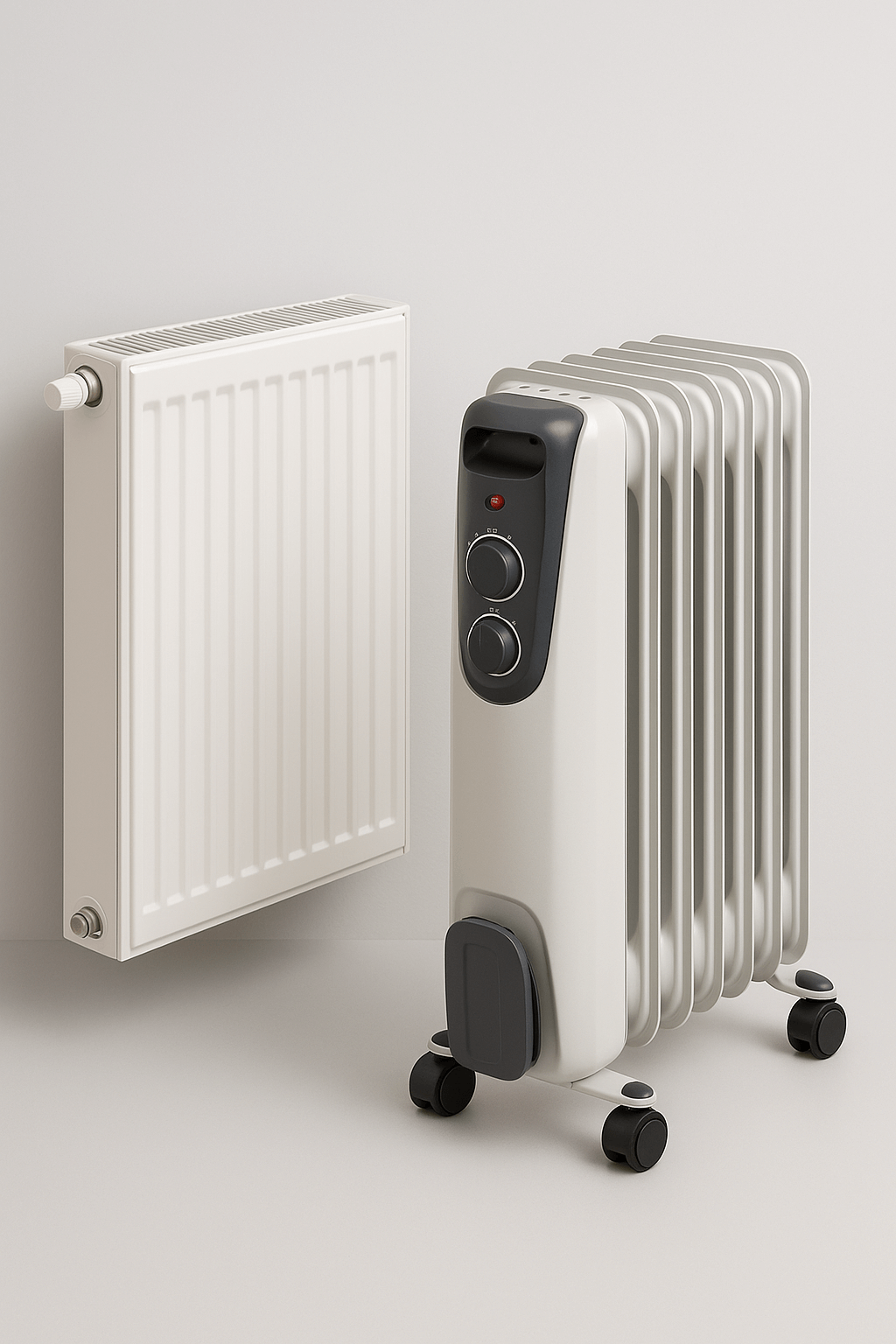Customs Clearance of Electric Radiators and Heaters in Iran (HS 85162900 + Documents and Standards)

For estimating time and cost of electric radiator and heater clearance, contact Saba Tarkhis experts.
Instant Free ConsultationTechnical Specifications and Types of Electric Radiators and Heaters
Fan Radiators: Equipped with an internal fan that distributes heat faster and more evenly in the environment.
Oil-Filled Radiators: Operate by using oil as a thermal fluid. Heat is transferred to the oil first, and then released to the surroundings.
Digital Heaters: Equipped with digital thermostats allowing precise temperature adjustment and energy optimization.
Electric heaters are also recognized as efficient heating systems that produce and distribute heat using electricity. They usually come with adjustable thermostats, enabling precise temperature control, making them suitable for homes, offices, and commercial spaces.
Specialized Applications of Electric Radiators and Heaters
- Specialized applications of electric radiators and heaters in various sectors include:
Residential Heating: Used in homes to heat living rooms, bedrooms, and other indoor spaces. Due to temperature control and high safety, they are the first choice of many families.
Office and Commercial Use: Due to adjustable temperature and high efficiency, they are suitable for heating offices and commercial environments, ensuring comfort and productivity.
Industrial and Semi-Industrial Applications: In workshops and small industrial areas, electric radiators serve as reliable heating sources, thanks to their durable design and fast heating capacity.
Technical and Legal Notes in Clearance of Electric Radiators and Heaters
Customs Tariff (HS Code)
Standards and Certificates Required
Inspections and Legal Approvals
Customs and Additional Costs
Required Documents for Clearance of Electric Radiators and Heaters
- Proforma Invoice: Contains product details, unit and total price, payment terms, and conditions issued by the seller.
Commercial Invoice: The final invoice issued after agreement, with full product and transaction details.
Packing List: Describes the contents of each package, weight, dimensions, and packing details.
Certificate of Origin: Issued by the exporting country’s Chamber of Commerce confirming product origin.
Certificate of Conformity: Issued by ISIRI or international bodies confirming compliance with standards.
Bill of Lading / Airway Bill: Shipping document with product type, weight, and destination.
Inspection Certificate: From an accredited inspection company confirming compliance with contract specs.
Import Permit: Issued by the Ministry of Industry, Mine, and Trade for importing goods.
Order Registration: Registration documents in Iran’s Trade System, confirming import approval.
Health and Safety Certificate: If required, confirms goods meet health and safety standards for import.
Customs Declaration: Official customs form with full import details.
Special Permits: If needed, permits from authorities such as the Ministry of Energy.
Main Exporting and Importing Countries of Electric Radiators and Heaters
Main exporters: China, Germany, Italy, and Turkey are among the most important exporters of electric radiators and heaters to global markets. Leveraging advanced technology and strong industrial infrastructure, these countries supply diverse, high-quality products worldwide.
Main importers: Iran, Russia, Saudi Arabia, and other Middle Eastern and North African countries are major importers of these products. High seasonal demand for heating systems in colder months has increased imports from producing countries.
Special Conditions for Import and Export of Electric Radiators and Heaters
Import/Export Volumes and Global Financial Turnover
Suggested Customs Tariff (HS) Code
| Item | Short Description | HS Code |
|---|---|---|
| Electric Radiator/Heater | Electrical heat-producing appliances | 85162900 |
Final classification depends on rated power, element/oil/fan type, electrical safety, household/industrial use, and the manufacturer’s technical documents.
Need precise HS determination, Iranian national standard approval, and document preparation? Our team manages your case end-to-end.
Submit Proforma Request.png)
Frequently Asked Questions
What is the HS Code for electric radiators and heaters?
As noted: electric radiators and heaters are declared under 85162900; final classification depends on technical specifications and the manufacturer’s documents.
What documents are required for clearance?
Proforma, final invoice, packing list, certificate of origin, COC/Iran National Standard, bill of lading, inspection certificate, import permit and order registration, safety/health certificate if required, and the customs declaration.
What are the ancillary costs in clearance?
In addition to duties and taxes, include warehousing, insurance, inspection, brokerage services, standard testing, and any potential detention costs in your calculations.
Special Customs Clearance Services by Saba Brokerage
With years of experience in customs clearance, we are recognized as one of the most reputable and experienced clearance companies in Iran. By providing comprehensive, specialized services for clearing electric radiators and heaters, our team supports importers through every step of the customs process. Our special services include:
Specialized consultation: Our experts, with high technical knowledge and full awareness of the latest changes in customs laws and regulations, are ready to provide specialized advice to importers and exporters.
Document preparation and compilation: We prepare and compile all documents required for customs clearance, including invoices, bills of lading, standard certificates, and import permits, with precision.
Clearance process follow-up: All stages from declaration to obtaining permits and necessary inspections are pursued professionally and in the shortest possible time.
Reducing costs and clearance time: With our team’s experience and expertise, you can minimize extra costs and waiting times.
Continuous support: From the moment goods enter customs until their release and even after we provide ongoing support and post-clearance services.
Using our professional services, importers and exporters can clear goods with complete confidence and bring them to market. Our commitment to delivering the highest-quality services guarantees your success.
.png)
